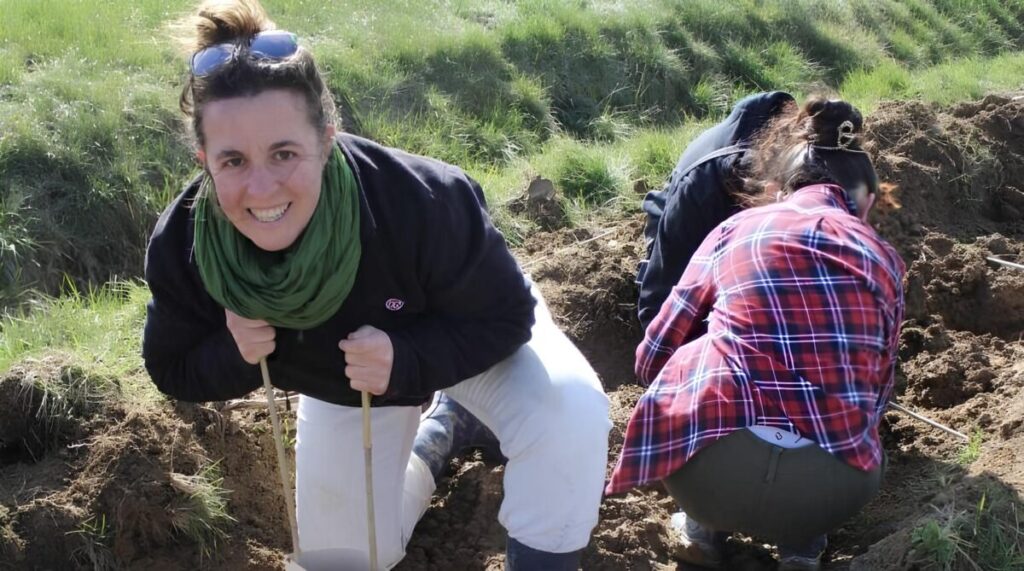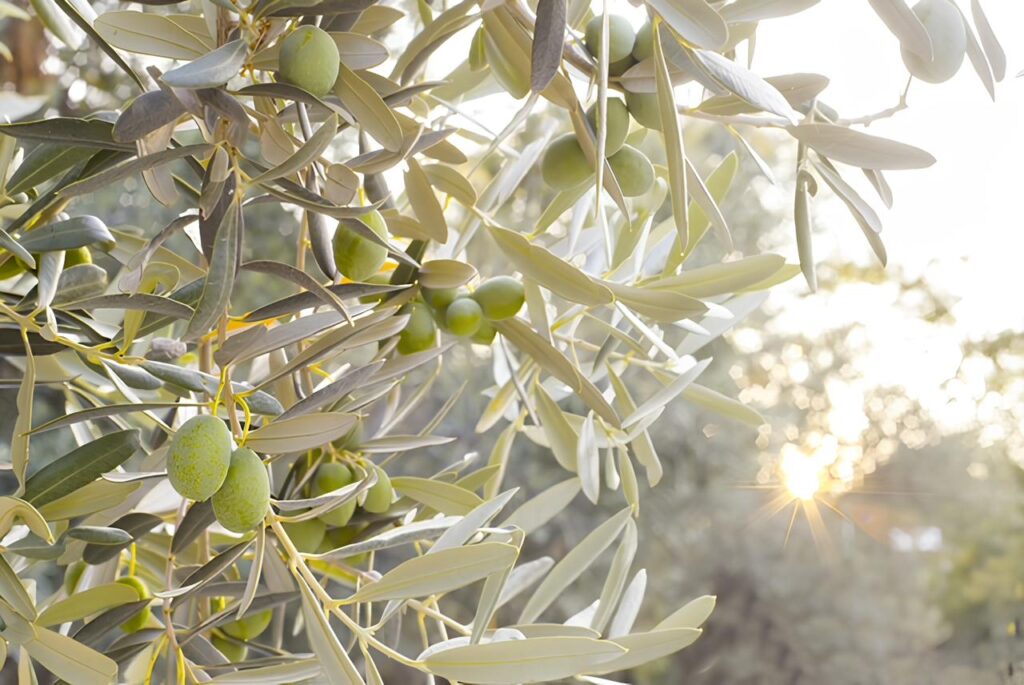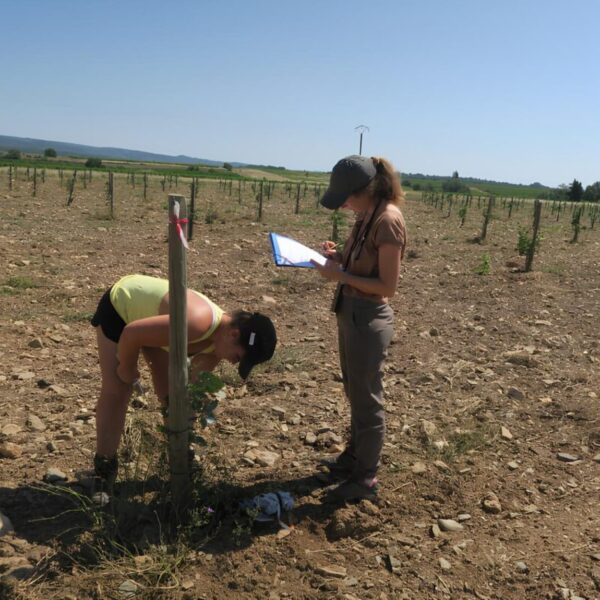Agricultural engineer, Kahina Baha helps farmers in Languedoc-Roussillon adapt their agricultural practices to new climate constraints and find additional sources of income. For example, by encouraging them to cultivate pistachio and olive trees, which are more resilient species.
Energy and Agriculture #2
With good shoes on her feet, a cap firmly on her head, notepad and measuring tools in hand, agricultural engineer Kahina Baha walks through a dry field dominated by vines. Next to her is a representative from the regional organic producers' association, Biocivam 11.
On a small hectare, shrubs are alongside the vines: pistachio trees, planted in January 2023. The two women observe them from every angle: their growth, trunk diameter, the growth since their last visit. They diligently note the obtained figures and their impressions. This plot is one of the pilot sites of a project funded by the Water Agency and the Occitanie Region. The goal is to study several tree species, including the pistachio. They need to gather data to better support farmers engaged in crop diversification.
Other plots are being invested in elsewhere in the region. This geographical deployment is interesting because the climatic conditions differ between various points. This allows for more detailed and localized information to be collected. Kahina Baha brings her technical expertise to this operation through Confian’Sol, her small business, created in May 2022 in Carcassonne.

A plant well adapted to hybrid, thermal, and light stress
The agricultural engineer is not new to these experiences. Very sensitive to agricultural issues, she works with farmers eager to adapt their crops to an inevitable climate change. This requires leaving behind ancestral practices and traditional monoculture. It involves turning towards other modes of production that are more resource-efficient and environmentally friendly, and ultimately, complementary sources of income.
“It’s a huge investment and change for a profession often undervalued,” emphasizes Kahina Baha, who was immersed in this environment early on through her farmer ancestors. “It’s not normal that in 2024, many of our farmers are struggling to make ends meet. That’s also why I wanted to contribute in my own way to the necessary shift.”
The pistachio tree adapts well to the climate of the Mediterranean region, which is dry and arid. It needs high temperatures and cold hours, meaning below 10 degrees, which is crucial for adequate growth. The tree tolerates a number of diseases and withstands well the water, thermal, and light stress associated with climatic uncertainties. “It needs to be irrigated for the first three years, but after that, it is not water-hungry,” specifies the graduate of the National School of Agronomy in Toulouse (ENSAT).
Trees that require little water
The pistachio tree is of great interest to local vineyard owners. The fruit from Italian and Greek varieties (Egine, Napolitaine, Pontikis, Sirora, Larnaka) – and from the Iranian variety planted on the Rieux-Minervois plot (Avdat) – is reserved for pastry. Pistachio trees, which produce fruit for snacking, are larger and require more water. In Provence, the cultivation of this tree native to the Middle East is already well underway. Languedoc-Roussillon is following the same path, supported by the France Pistache union, of which Kahina Baha is a board member.
The cultivation of olive trees is also an alternative to cope with climatic and economic uncertainties. “It’s a tree that is found a lot in the Provence region and in the eastern part of Occitanie. It adapts very well to the Mediterranean climate conditions,” she explains. The olive tree helps mitigate the effects of climate change thanks to its carbon sink effect. Its water needs are very modest. An olive grove of one hectare requires 800 m3 of water per year compared to 3,500 for the same area of cereals. The harvested fruit can be used for direct consumption (canned goods, fresh produce shops...), for oil production, and also for biofuel via the pit, similar to what is already being experimented with in Spain.
The young woman is also involved in a 150-hectare farm project, including 50 hectares of forests and 100 hectares of olive groves of four different varieties in the heart of the Cathar Country.
In addition to her expertise, Confian’Sol, Kahina Baha's organization, aims to raise awareness of agricultural issues among young people in middle and high schools, as well as the associative sector. “I would also like to be a bridge that fosters connections between migrants and agriculture in a spirit of mutual contribution and integration. There is so much to be done for both sides.”

Cover Photo: Young pistachio plants are planted in Rieux-Minervois © P.Guipponi
